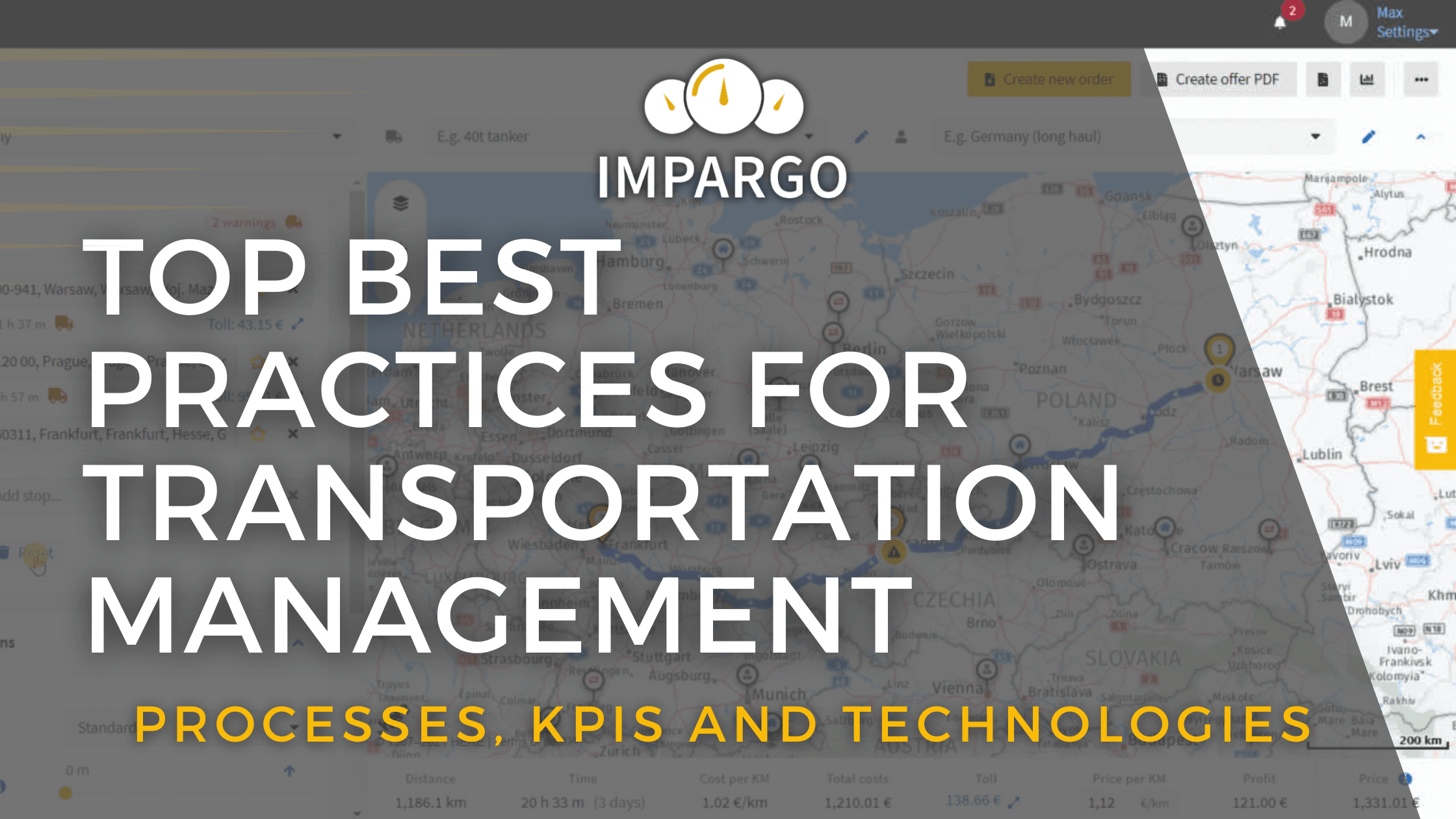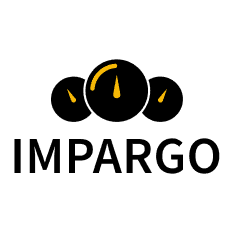
Introduction
Effective transportation management is key for any company operating a fleet. By establishing the right processes, measuring the right metrics, and leveraging the latest technologies, you can maximize efficiency and keep costs under control.
After reading this post, you should know the top best practices to consider for your transportation operations, including an easy, all-in-one digital solution for road freight transportation.
Table of Contents
- Processes
- KPIs (Key Performance Indicators)
- Technologies
- The Easiest Solution for Transportation Management
- Stop Using Outdated Practices for Transportation Management
Processes
1. Route Optimization
Analyzing routes and consolidating deliveries/pickups can eliminate unnecessary miles, reducing fuel costs and improving efficiency.
2. Load Optimization
Properly distributing weight and cargo prevents overweight loads, ensuring compliance with regulations and maintaining safety.
3. Dispatching
Having a clear dispatching process allows for efficient assignment of drivers to routes, minimizing delays and maximizing productivity.
4. Maintenance Tracking
Scheduling preventive maintenance and tracking vehicle condition helps prevent breakdowns and keeps the fleet in optimal condition.
KPIs
1. On-time Delivery Percentage
Measuring if shipments reach customers on promised dates helps evaluate the reliability of transportation operations and customer satisfaction.
2. Miles per Gallon
Tracking fuel efficiency over time allows for identifying areas of improvement and reducing fuel costs.
3. Driver Hours of Service Compliance
Ensuring drivers don't exceed legal limits for hours worked promotes safety and compliance with regulations.
4. Empty Miles Percentage
Minimizing miles driven without cargo onboard improves efficiency and reduces costs.
Technologies
1. Transportation Management System (TMS)
Automating processes and providing visibility into operations, a TMS streamlines transportation management, enhances efficiency, and reduces manual errors.
Using GPS technology, fleet telematics tracks vehicle locations, driver behavior, fuel usage, and maintenance needs, enabling better decision-making and optimization.
3. Electronic Logging Devices (ELDs)
ELDs help drivers track hours of service digitally, ensuring compliance with regulations and improving accuracy in recording working hours.
4. Route Optimization Software
Leveraging algorithms, route optimization software calculates the most efficient routes, considering factors such as traffic, distance, and delivery schedules, leading to reduced costs and improved efficiency.
The Easiest Solution for Transportation Management
Great News!
In this day and age, road freight transportation companies have access to an all-in-one solution. IMPARGO Transportation Management Platform has all the tools to apply the best practices for road freight transportation management.
1. Route Optimization and Planning
IMPARGO uses algorithms and route intelligence to plan the most efficient routes for fleet vehicles, reducing empty/dead miles and improving overall efficiency.
2. Load and Capacity Management
The system helps dispatchers optimize vehicle capacity and load distribution, minimizing the number of trips needed and improving resource utilization.
3. Tracking and Dispatching
IMPARGO provides real-time visibility into vehicle and shipment locations, enabling dispatchers to track progress and effectively respond to issues or delays.
4. Reporting and Analytics
The platform collects extensive data that can be analyzed with reports, uncovering savings opportunities related to fuel usage, driver behavior, and more.
5. Integration Capabilities
IMPARGO integrates seamlessly with other transportation systems like ERP, telematics and ELDs, streamlining processes and enabling efficient data sharing.
6. Mobile Access
Both drivers and dispatchers can access key information and manage shipments on the go using IMPARGO's mobile app, ensuring real-time updates and enhanced communication.
7. Customer Management
IMPARGO offers tools to help companies better serve customers, including features like shipment tracking, document exchange, and proof of delivery.
Stop Using Outdated Practices for Transportation Management
By automating processes, providing insights, and optimizing operations, IMPARGO aims to help transportation businesses reduce costs, improve efficiency, and better meet customer needs. Through our TMS, the dispatcher's job has never been easier!
Does this help explain how the system could benefit your company? Let us know if you need any clarification or have additional questions.

